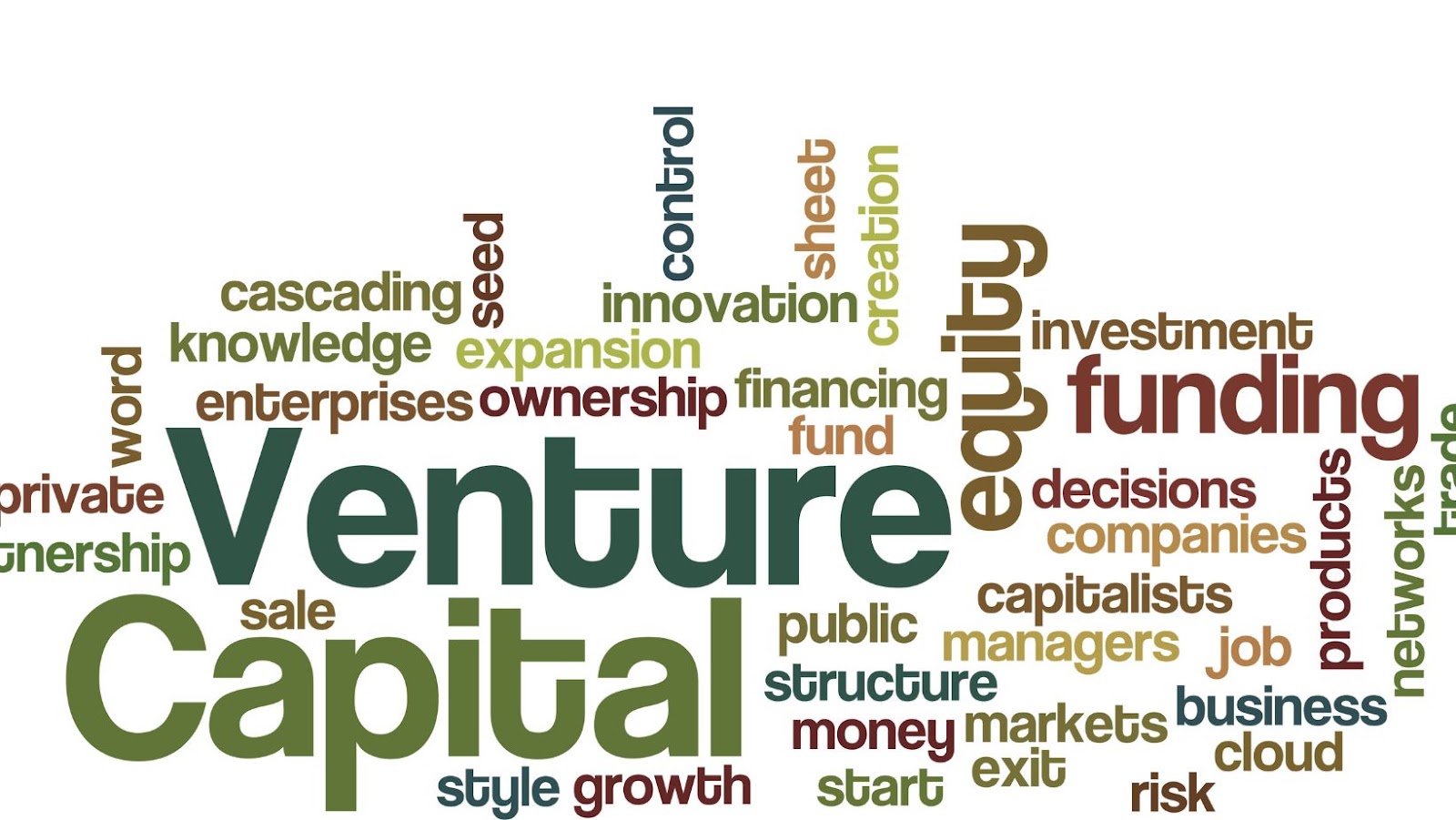
Venture Capital (VC) has had a major impact on the global economy and has been a key driver of economic development over the past decades. In addition, VC funding has enabled some of today’s most successful startups to get off the ground and grow into highly influential companies that have profoundly impacted the world.
This article will explore the history and evolution of venture capital, how it has created the modern world, and its effects on the global economy.
Definition of Venture Capital
Venture capital is a form of private equity and financial capital provided by investors to entrepreneurs to fund their startup business ventures with high potential for growth or which can be sold for a large return. Venture capital involves taking a substantial risk in exchange for an expected gain in return, usually over the long term. The venture capitalist takes a share of ownership in the venture and endeavours to build it up and maximise its value so that they receive returns on their investment when the company is eventually sold.
Venture capital has been credited with playing an important role in opening up sources of capital, new technologies, and more efficient financial markets which are thought to help foster economic growth. An analysis of recent studies suggests that start-ups backed by venture capitalists have:
- Created millions of jobs around the world
- Offered novel solutions to global challenges such as climate change
- Funded innovations ranging from autonomous cars to virtual reality headsets
- Created new market opportunities across many industries without any tax money

This makes venture capital an attractive option for investors seeking to increase or diversify their portfolios beyond traditional investment opportunities.
Overview of the Global Economy
The global economy has rapidly changed in the last several decades, with technological developments and globalisation providing a range of new business development and investment opportunities. Among the most notable drivers of these changes is venture capital, which has provided a source of investment to fund new ideas and innovations, allowing them to become viable business enterprises and create economic growth.
Venture capital firms are private companies that seek out promising investments in startups and other high-growth businesses. These firms represent large pools of money used to support entrepreneurs with promising concepts or innovative products, providing them with necessary funding to develop their ideas into potential commercial successes. In addition, venture capital firms provide an important connection between investors and businesses, connecting the two groups’ objectives as an equity security or debt instrument.
This infusion of capital allows companies to perform ongoing research and development activities while expanding their operations domestically and internationally. This has led to a surge in many emerging markets and innovative approaches to meeting consumer demand worldwide. In addition, by enabling investment into potentially successful ventures, venture capitalists have helped foster growth at all market levels – from small startups to larger corporate acquisitions or mergers.
As well as providing funding for projects which can drive future economic growth through job creation, venture capitalists also provide portfolio diversification services that reduce risk for large investors; serve as mentors for business founders; develop advisory boards for funded companies; and lead buyout opportunities by focusing on areas where traditional banks cannot invest – such as early-stage projects or markets without established financial structures or regulations. Overall, this contribution has had far-reaching implications across many sectors worldwide – both developing economies due to increased investment potentials and developed markets due to industry consolidation opportunities brought about by increased venture capital inputs.
The History of Venture Capital
Venture Capital as an important tool of capital investment has changed the face of the global economy over the last few decades. Before the influx of venture capital, traditional investment methods such as private equity financing and bank loans focused mainly on established businesses and well-established revenue streams. However, venture capital created a way for startup companies to access larger pools of capital – enabling them to potentially change the world.
This article explores the history of venture capital and how it has affected the global economy.
Early Venture Capitalists
Venture capital has been around since the late 1800s, when wealthy families – the Vanderbilts, Rockefellers, and Fricks – used their wealth to finance companies emerging from the industrial revolution. This form of financing was heavily associated with the railroads.
The venture capital industry entered a slump during the Great Depression; this lasted until after World War II, when the U.S. economy began to boom again and many individuals became investors in new companies that were popping up all over the United States. Many of these early venture capitalists made their fortunes investing in technology startups – computer giants such as Apple, Microsoft and Intel were among them.

However, it wasn’t until 1958 that Georges Doriot created the first professional venture capital firm – often referred to as ‘the father of venture capital’ – making him responsible for bringing what had previously been an informal activity into a more structured business model. In 1966 Bill Draper and his son Dick founded the first independent venture capital firm on the West Coast – Draper & Johnson Investment Company (now known as Sutter Hill Ventures).
Today there are hundreds of professional venture capital firms operating in every region of the world, all striving to provide businesses with access to crucial funding resources to help them innovate and grow quickly while mitigating risk associated with scaling up operations. By democratising access to financing for entrepreneurs who may not have access to other channels of growth funding such as banks or wealthy angel investors, these early ventures paved much of today’s modern way for capitalism around the world.
The Rise of Venture Capital
Venture capital has been an indispensable force in reshaping the business landscape of the 21st century. Its emergence and prominence can be traced back to early seed investments in the mid-20th century and its steady growth. In its most basic form, venture capital is financing provided by a financial institution or individual investor to initiate projects or businesses that hold potential for high returns on investment.
It often includes riskier investments, but if successful, can generate substantial rewards for both the investor and the business.
This type of investment has had a major impact on small and medium-sized enterprises throughout global markets, providing much needed start-up funding to entrepreneurs who otherwise might not be able to access these types of resources. After reviewing the underlying risks associated with particular investments, venture capitalists are typically willing to invest large amounts in cutting-edge businesses or technology projects as long as they promise to produce above-average returns.
This influx of capital assists companies with furthering their research and development pursuits while also providing financing for working capital requirements; allowing them to focus on building viable products or services that can succeed in crowded markets.
Over the years, venture capital has grown significantly from its origins into a significant driver of innovation within industries worldwide. From young technology firms such as Google and Facebook emerging from Silicon Valley incubators, to multi-billion dollar pharmaceutical companies originating out of university laboratories across Europe – venture capital investments have made it possible for ambitious individuals with innovative ideas to bring their dreams into fruition and make positive impacts on entire economies at a global level.
The Impact of Venture Capital on the Global Economy
Venture capital has tremendously impacted the global economy over the past several decades. This investment has been instrumental in creating new businesses, incubating new technologies, and driving economic growth.
This article will examine how venture capital has shaped the modern world by exploring its impact on the global economy.
How Venture Capital Created the Modern World
Venture capital has been described as the “science of risk management” given its decision to invest over a longer period in more innovative and risky entrepreneurial companies. This form of financing for startups and early-stage ventures provides financial resources and strategic advice to entrepreneurs in various industries. In the modern world, venture capital has become an important driver of technological innovation, economic growth, and job creation worldwide.
Innovation is at the heart of venture capital. These funds support early-stage startups with long-term goals and ambitious visions – with these investments they seek to fund technologies that are likely to shape the future. Venture capitalist networks are also often invaluable in helping entrepreneurs refine their ideas, assess markets, establish operational plans, and attract additional financing later in their corporate development cycle.
Venture Capital helps foster economic growth by investing in new businesses that can create employment opportunities and increase output with improved goods and services. It stimulates entrepreneurship worldwide by creating a pool of capital available for investment. It encourages innovation more than traditional sources such as banks or family owned businesses which tend to be more conservative when deciding which projects should receive funding. Supporting high-growth companies can produce significant returns for investors and provide valuable guidance for entrepreneurs who might otherwise struggle due to cashflow constraints or lack of knowledge on successful strategies for commercialising inventions. As such, it’s fair to say that venture capitalists have played a major role in creating a prosperous global economy today – one without their impact we would be missing out on countless opportunities for improvement we experience today from groundbreaking new technologies to increased general prosperity being spread among different countries worldwide.
The Impact of Venture Capital on Startups
Venture capital has had a major impact on the global economy, particularly in enabling startups to succeed and creating opportunities for entrepreneurs to innovate and grow. By investing in high-risk, high-reward propositions, venture capitalists stack the odds in favour of radical new ideas, technologies, or products that could become the next generation of global market leaders.
In addition to providing capital for new projects and technologies, venture capitalists also bring strong connections and expertise to the table. They can provide advice on:
- Growth strategies
- Market research
- Competitors’ activities
- Potential investors
This assistance is consistent across all stages of a company’s life cycle—from planning to launch to implementation—and helps founders develop a more holistic vision for their enterprise.
Venture capitalists have a long history of transforming businesses that make vital contributions to local markets and international ones. From Amazon and Alibaba to Uber and Stripe—all have been backed by venture capitalists—many companies today owe their success at least partially to the investments made by these financiers.

Moreover, by backing startups worldwide with resources and expertise, venture capitalists open possibilities not previously envisioned by entrepreneurs or small businesses—ultimately creating economic opportunities while facilitating long-term reductions in poverty levels throughout developed nations.
The Impact of Venture Capital on Innovation
Venture capital investments provide critical support for start-up businesses and entrepreneurs, embryonic companies with innovative ideas but often limited access to traditional sources of working capital. In return for the risk taken by venture capitalists, investors can typically expect substantial returns to compensate them for their early and often essential financial boost.
The investment activities of venture capitalists then reverberate throughout the global economy: besides supporting innovation, venture capital investments foster ecosystems of young sector-specific companies whose initiatives create new markets, displace old ones, develop new products and services, power economic growth and reap immense profits. As a result, the international financial landscape has been fundamentally altered since the advent of venture capitalism.
One example is Silicon Valley’s meteoric rise to become one of the most influential centres in global commerce. The Valley has grown into a franchised concept due to its successes in areas such as information technology that have exploded in growth potential with consequential benefits across many global industry and finance sectors. This can be attributed at least partly to venture capitalist backing that allowed startups with innovative projects still in their early stages to thrive domestically and abroad due to an ever-increasing network of industry contacts seeking further projects worthy of investment.
Furthermore, venture investing has also led to massive reductions in transaction costs associated with fundraising for firms undertaking ambitious initiatives without established track records such as space travel or medical treatments based on complex research breakthroughs – ventures which some may term moonshots due to their focus on lofty ambitions over incremental improvements based safely on existing technologies.
These endogenous improvements resulting from the injection of venture funds have propelled modern innovations such as cellular technology or energy production from renewable sources into mainstream use across societies around the world simply by increasing access through it lowered cost base – functionality provided not only by willing investors but also from increased collaboration permitted by digital transformation enabled by enhanced connectivity enabled by these same investments themselves which then reinforce future rounds thereby offering an overall powerful positive feedback loop upholding innovation growth wherever entrepreneurial opportunities exist regardless of geographic origin or local regulatory supports.
Future Outlook for Venture Capital
As venture capital continues to grow and the global economy continues on its path of unprecedented growth, it is clear that venture capital will remain critical in the future. With new markets and industries opening up, venture capitalists will likely continue their role as a driver of economic growth. Moreover, by increasing access to funding, they are likely to create new opportunities for entrepreneurs who otherwise may not have been able to obtain financing or scale their businesses.
At the same time, venture capital must also be used responsibly and with a view towards long-term success. This requires operating with integrity, understanding long-term trends in global markets, delivering returns for investors and helping companies reach their potential through thoughtful guidance and support in making strategic decisions. At the end of the day, if used responsibly venture capital can be an incredibly powerful tool for creating lasting impact that reverberates throughout generations.
tags = venture capital, tech entrepreneur,interesting sort of capitalists, gen vc gentiku washingtonpost, the gen gentiku washingtonpost, vc vc gentiku washingtonpost, gen vc vc gentiku washingtonpost, artificial intelligence, tech entrepreneurs, venture capitalists, venture-backed firms, engine of modern innovation













